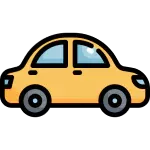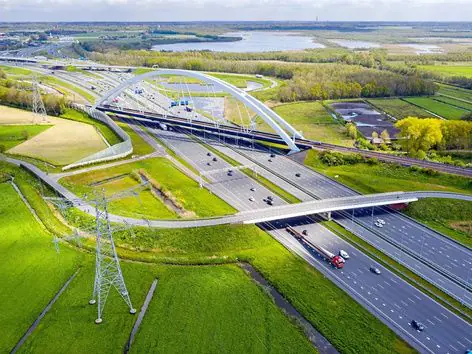
The Netherlands is known worldwide for its developed transport system. Traffic rules in this country are based on the principles of safety and shared responsibility of each road user. Find out more about traffic rules in the Netherlands and the specifics of driving
Travelling to the Netherlands by car can be a real challenge, as the streets in tourist cities are usually narrow and winding. However, following the traffic rules will guarantee safety while travelling on Dutch roads.
Driving in the Netherlands
Traffic rules in the Netherlands are in line with European standards, but it is important to know the local peculiarities for safe and comfortable driving.
Traffic participants should keep to the right pavement, giving way to public transport. Special attention is paid to cyclists who have the right of way. A driver's blood alcohol concentration should not exceed 0.5 ppm, and only 0.2 ppm is permissible for young drivers under the age of 24.
When transporting children, it is important to use special restraint systems, and child seats for children under 3 years of age. Seat belts are required for all passengers occupying the front and rear seats. Talking on the phone while driving is only allowed with a hands-free headset.
In terms of speed, you are allowed to accelerate up to 130 km/h on main roads and 100 km/h on local roads. In cities, the speed limit is 50 km/h, and in difficult areas - up to 30 km/h. Speeding can lead to high fines, which can range from €11 to €390.
Visit Ukraine on social media: Telegram | YouTube | Instagram | Facebook | Twitter | TikTok
Basic rules of the road in the Netherlands
The Netherlands has specific traffic rules that determine the order and safety on the roads. Knowledge of these rules is important for all road users, as they contribute to mutual understanding and avoidance of misunderstandings on the road.
The first principle of Dutch traffic is that all vehicles must drive on the right. At intersections and side roads, right-hand traffic has priority unless otherwise indicated by road signs or signals. Roundabouts require drivers to give way.
Emergency vehicles (ambulances, police, firefighters) always have the right of way, which is indicated by blue flashing lights and a siren.
Drivers are required to wear seat belts, even if they are passengers. Changing direction is indicated by orange flashing lights, and cyclists should use hand gestures.
Pedestrians should walk on the sidewalk and cross the road on the zebra crossing, and in the absence of a sidewalk, they should walk on the left side of the road. Walking and cycling on roads, railways and trams is prohibited.
The switching on of front and rear headlights on all vehicles becomes mandatory after dusk. The police can fine road users for violating traffic rules.
Parking rules in the Netherlands
In the Netherlands, parking rules are strictly enforced, and you cannot choose a place for your car anywhere. Usually, you have to pay for parking, especially in large cities. Blue borders mean free parking only if you have a special blue card. This card allows you to park for free for a few hours and can be purchased at various places, such as police stations, petrol stations or tobacco shops.
In big cities, paying for parking is the norm. In places such as Amsterdam, Rotterdam, The Hague and Utrecht, the rates can be high, ranging from €3.00 to €7.50 per hour. However, the cost of parking can vary depending on the distance from the city centre - the further you are from the centre, the cheaper the parking.
How to protect yourself from unforeseen expenses when travelling by car?
When planning to travel abroad by car, you should take care of reliable insurance to avoid unnecessary expenses.
By purchasing a Green Card, you get the following benefits:
- Convenient and fast registration procedure;
- 4 types of packages: for 15 days, 1 or 6 months, or a year;
- An official policy from a reliable insurance agent;
- Possibility to extend the policy from abroad.
Please note! If you take out a Green Card policy for a period of 1 month or more, you will receive fuel as a gift, or for a period of 6 months or more - + 15 days of the policy as a gift.
You can order the Green Card on the website. Our manager will tell you more about the benefits of the policy for your trip.
Rules in case of car breakdown in the Netherlands
A car breakdown on the highway can be a nuisance, but it is important to know how to act correctly to ensure the safety of yourself and other road users. Here are some steps to take in the event of a breakdown on the road:
1. If possible, try to get to a safe place, such as a car park or petrol station. This will help avoid danger to you and other drivers.
2. Switch on the hazard warning lights and park the vehicle as close as possible to the right-hand crash barrier. Turn the front wheels towards the barrier for added safety.
3. Leave enough space for passengers to exit on the right side of the vehicle and try to leave the vehicle with them as soon as possible.
4. Call a repair service provider such as Roadside Assistance or another official advisor. If you are in danger, call 112 or the National Information Line (0800-8002).
5. When reporting a breakdown, give the exact location, which can be found on the nearest kilometre post on the right-hand side of the motorway. Indicate the numbers on the post and whether you are on the left or right side of the road.
Want to know more? Read the latest news and useful materials about Ukraine and the world in the News section.
Our recommendation for a safe and comfortable trip:
Visit Ukraine Insurance - insurance for a safe stay abroad without unnecessary expenses;
Green Card - compulsory car insurance for traveling abroad;
Visit Ukraine Tickets - book tickets for buses, trains, and airplanes to/from Ukraine and between cities around the world;
Private Lawyer service - professional legal support on visa and migration issues;
Visit Ukraine Merch - buy patriotic clothing and accessories with worldwide delivery.
© 2018-2023, Visit Ukraine. Use, copying or reprinting of materials on this site is permitted only with a link (hyperlink for online publications) to Visit Ukraine.
All rights reserved.
Recommended articles
2 min
Car insurance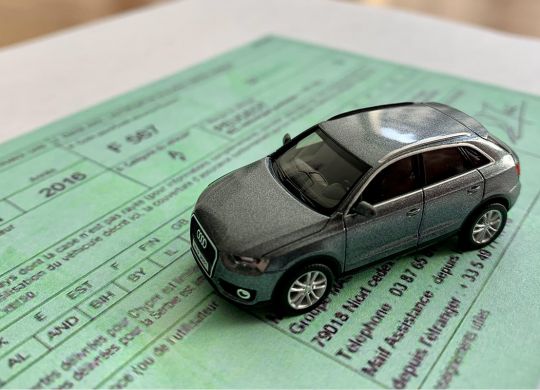
MTPL vs Green Card: main features and differences
All motorists are well aware of the axiom that car insurance is mandatory and necessary. However, the insurance market is sometimes difficult to navigate even for experienced drivers, let alone beginners. Find out more about the difference between MTPL and Green Card
13 Jan. 2025
More details3 min
Car insurance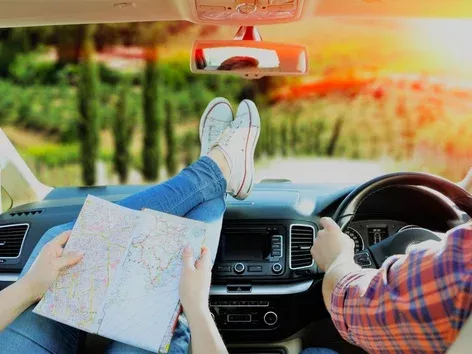
Before traveling abroad in your own car, you need to collect all the necessary documents and make sure you have international insurance. Find out what documents you need to have for a safe trip abroad and what coverage is provided under the Green Card
03 Feb. 2025
More details3 min
Car insurance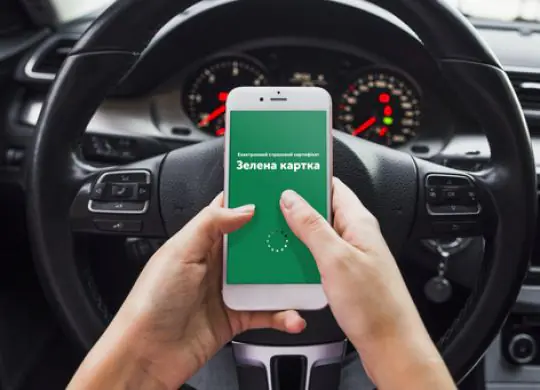
What to do if your Green Card policy expires abroad: everything you need to know
When traveling abroad by car, many drivers face the situation when their Green Card has expired. Find out more about what to do in this case and why a Green Card policy is mandatory for traveling abroad by car
26 Jan. 2025
More details1 min
Travel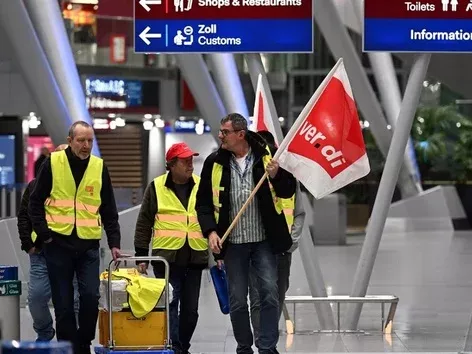
Transport collapse in Europe: where to expect massive strikes in February
Strikes in Europe are causing instability in public transportation and other industries. In particular, a large number of strikes are scheduled for February in various EU countries, which can significantly complicate the lives of residents and tourists. Find out more about where strikes will take place in February 2024
07 Feb. 2024
More details

